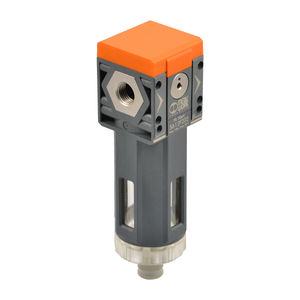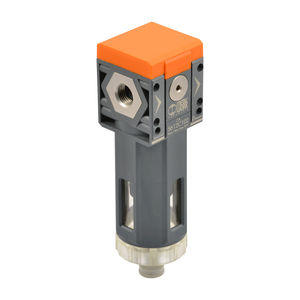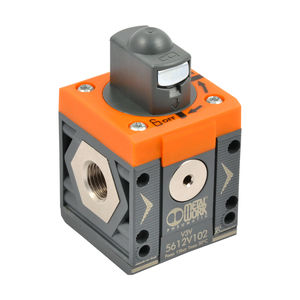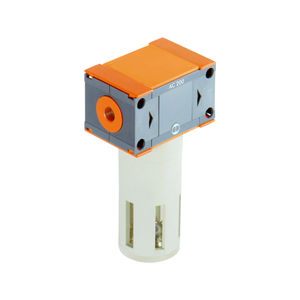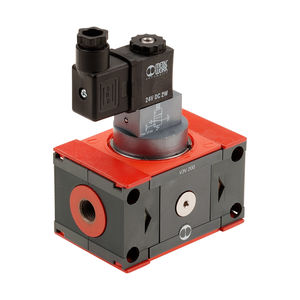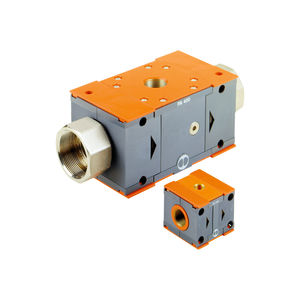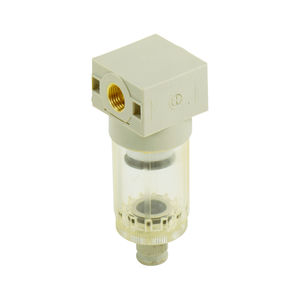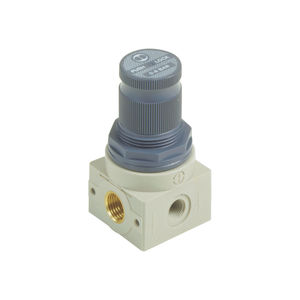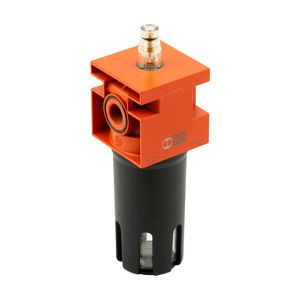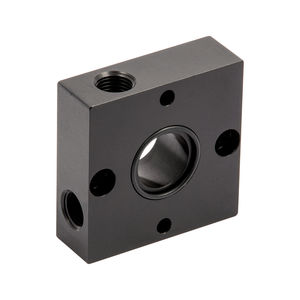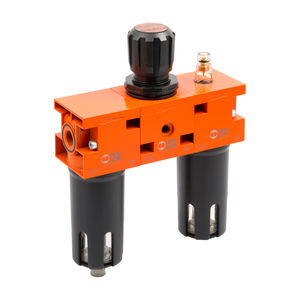
Compressed air pressure regulator REG SY seriesmembranesingle-stagepneumatic

Add to favorites
Compare this product
Characteristics
- Product
- for compressed air
- Technology
- membrane
- Number of stages
- single-stage
- Applications
- pneumatic
- Pressure
Min.: 0 bar
(0 psi)Max.: 15 bar
(217.56 psi)- Flow
Min.: 570 l/min
(150.58 us gal/min)Max.: 7,600 l/min
(2,007.71 us gal/min)- Orifice diameter
Min.: 0.13 in
Max.: 1 in
Description
Syntesie pressure regulator is based on the rolling diaphrogm principle, which offers numerous advantages compared to systems using a flat diaphrogm:
• Increased stroke, allowing wider valve aperture and hence greater flow rate.
• Decreased dynamic and pick-up friction, and hence quicker response and enhanced sensitivity.
• Greater occuracy in maintaining the pressure setting, both with both variable flow rates and different supply pressures.
The regulator indudes a compensation system that keeps the pressure setting virtually constant, even when the upstream pressure changes.
This is achieved mainly by the design of the valve, which is pneumatically balanced.
If the downstream pressure rises above the threshold value, the air is discharged (relief valve) until it drops below the maximum value.
A special device relieves downstream pressure rapidly when the upstream pressure drops to zero. This means the regulator can be positioned between a valve and a cylinder because the air can flow in both directions, towards the cylinder with regulated pressure, or return towards the valve during relief.
The knob is the push-lode type - once the pressure has been set, press it and it locks in position. In this position you can pull out the plate and attoch two padlocks on size 1 or three podlocks on size 2 in order to avoid possible tampering. On the front and bock there is a port (1 /8* for size 1 and 1/4' size 2) that can be used with pressure gauges, pressure switches or as an additional regulated air intake.
VIDEO
Catalogs
GENERAL CATALOGUE
1566 Pages
Compact Catalogue
256 Pages
Exhibitions
Meet this supplier at the following exhibition(s):


Related Searches
- METAL WORK valve
- Hand valve
- Control valve
- Stainless steel valve
- Ball valve
- METAL WORK pneumatic valve
- Threaded valve
- METAL WORK solenoid valve
- Regulating valve
- Stop valve
- Flap valve
- Non-return valve
- Electric valve
- METAL WORK gas solenoid valve
- METAL WORK NC solenoid valve
- METAL WORK directional control valve
- 2/2-way solenoid valve
- METAL WORK pneumatically-operated valve
- METAL WORK direct-operated solenoid valve
- METAL WORK pressure regulator
*Prices are pre-tax. They exclude delivery charges and customs duties and do not include additional charges for installation or activation options. Prices are indicative only and may vary by country, with changes to the cost of raw materials and exchange rates.




